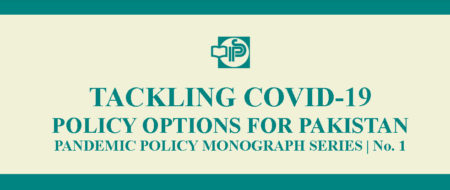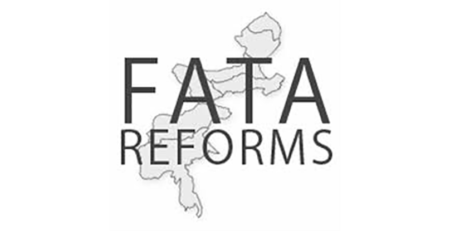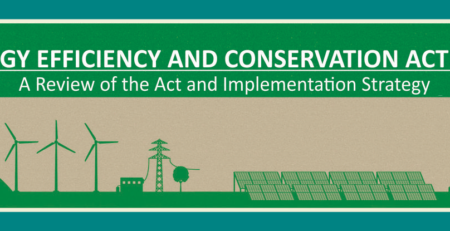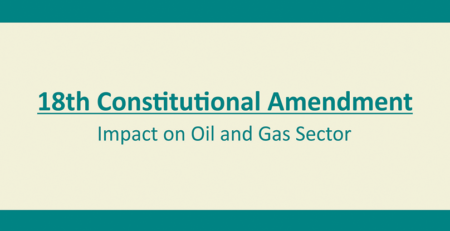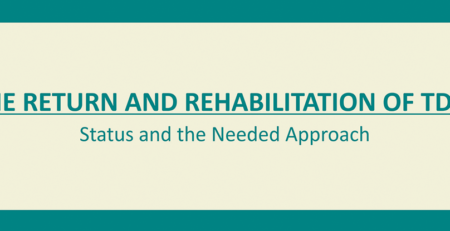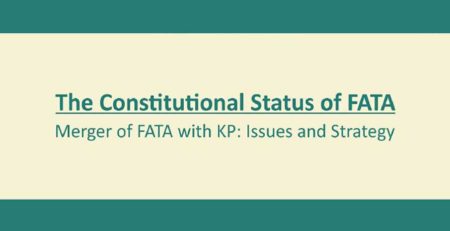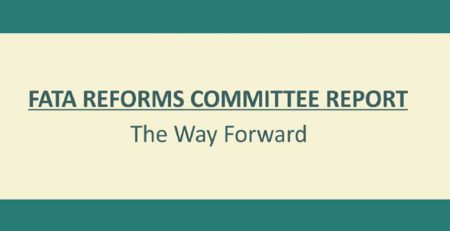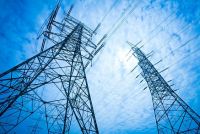Revival of the Constitution and Judiciary in Pakistan
Ensuring independence of judiciary and integrity of judges are fundamental. Besides, Pakistan needs to ponder over the ways to stop continued mutilation of the constitution.
Abstract
[An independent judiciary guarantees the rights of the citizens and the federating units. The system of federation can not move forward unless there is a judiciary with total structural independence. Integrity of the judges is a key element and sadly, the judicial system in Pakistan is marred by corruption. An alert press and wide-awake civil society can play instrumental role in fair judgments. Strong political will is required for restoration of the deposed judges. Amendments in the constitutions should be made in a way that every thinking mind in the country participates in it. Pakistan needs to ponder over the ways to stop continued mutilation of the constitution, and those responsible as well as their collaborators should be punished. – Editors]
The general elections of February 18, 2008 raised hopes of a new beginning; everyone started talking about the agenda before the new government. Discussions between citizens are reflective of their wishes and hopes and in recent months debate on revival of the constitution and the judiciary has dominated the parleys and has emerged as a major theme both in public and intellectual level debates. At least two aspects of this discussion need to be understood: the meaning and significance of the much-repeated slogan “Restoration and independence of the judiciary”; and how the nation might get rid of the menace of constitutional deviations.
Regarding the first aspect, the key questions to reflect upon are what importance the constitution carries, what the constitutional position of the judiciary is, and why the debate on independence of the judiciary has attained a central position in the lives of common Pakistanis. What does the independence of the judiciary mean for an ordinary citizen and for the federation?
Although no prudent person would claim that the judges should be regarded as free if they were not in fetters or that they were independent if they were receiving hefty salaries, heavy perks and protocols but ironically, few understand what is really meant by independence of judiciary.
The Judiciary and the Constitution in the Federation
All constitutional jurists agree that, in a federation, the people of a territory enter into a covenant with the state on certain listed protocols, and the arbiter who must enforce that covenant between the citizens and the state and between the federal units is the judiciary. Its role is to analyze propositions and decide them in accordance with the law and the constitution. This is what we call the rule of law. The judiciary is the organ of the state that acts as guarantor of the rights of the citizens and the federating units as agreed by them and acknowledged by the state. This is the body that reacts to any breach or violation of the covenant between state and its citizens. Conceptually, there cannot be a federation unless it has a judiciary capable of enforcing the rights of the federating units and citizens against the state; a powerful and independent judiciary is a sine qua non for the existence of federation. A country may have a constitution three times as long as Pakistan’s but, unless it meets the touchstone of an effective judiciary, it would not qualify as a federation as defined by jurists from the beginning.
Agreements are entered into on the inherent assumption that they are enforceable; if they were not, it would be as if they did not exist. And if an agreement does not truly exist, the existence of any mutual relationship between its parties is, at the very least, called into serious question. Therefore, somebody who undermines the covenant called the Constitution is, in fact, undermining the very existence of the federation and the country.
In Pakistan’s case, if a judiciary is there but it cannot enforce the rights of Balochistan, the North West Frontier Province (NWFP), Sindh, Punjab, the Federally Administered Tribal Areas (FATA), and the capital territory, as well as all the fundamental and incidental rights of citizens then, for practical purposes, no judiciary exists. One organ of the state is, in fact, missing.
The rights of a person to remain in Pakistan, live in Pakistan and not be taken out of Pakistan are to be guaranteed by the courts of the country. If my home is not protected against encroachment on my privacy, if my telephones are bugged, if there is wire clipping, if somebody is spying on me, the judiciary is bound to enforce Article 14. If a citizen of this country disappears, or is picked up from his home, his work place or from anywhere walking on street and is not brought before a court, not for one day, not for one week but for years, the judiciary has failed to enforce his right under Article 15 of the Constitution. If the country’s judiciary is not capable of protecting even this fundamental right, then the federal set-up may exist de facto but not de jure.
Notably, the thrust of most of the fundamental rights is against the federation. A state where one ordinary citizen can get justice against another citizen, but both cannot get justice against the state, is not a federation according to the jurists. This is because, under the constitution of a federation, the judiciary is a provider of justice not only between individuals but also between individuals and the state.
The Constitution of Pakistan may be seen as the country’s power distribution box. It distributes power to the federating units and federation, to the judiciary, to the armed forces, to provinces, and to the governors. Nobody else is delegating power. The president enjoys his own powers but he is not superior to the nazim of a district. The district nazim is working in his own place; the provincial governor and provincial chief minister are working in their own places, and the president is working in his place. All of them are designated functionaries of the system, whether they serve at its hub or its ends. Each derives his powers, role and responsibilities from the constitution, and is required to perform the functions devised for the position by the constitution. Thus, the mutual relationship of these functionaries does not carry any of those nuances of personal authority that may be found, for example, among elder and younger brothers.
The Quest for an Independent and Impartial Judiciary
In view of their crucial role in enforcing the constitution and cementing the federation, it is imperative that such judges be appointed who can appreciate and effectively play their roles, and that these judges be provided an environment in which they can play their role without external influence of any kind.
Structural Independence
When we talk about structural independence of judiciary we mean that the court must have a definite size and a definite number of judges, and the judges should be serving with definite and secure tenures and definite terms and conditions. After a judge passes a judgment in his courtroom, he should not return home to find that his official car has been taken back: the financial perks, privileges and everything else relatable to his terms and conditions should be known and should not be subject to change in the hands of any party whose case he might hear. On a larger level, there should be no threat that if a judge decides a case against the ruler, the entire court might be wrapped up. Only with structural independence would judges have an environment where they could decide cases free of fear or favor.
Unfortunately, the ruling class has never been able to digest an independent judiciary. The late Zulfiqar Ali Bhutto himself, in whom the credit for the passage of our unanimous constitution vests, was responsible for the 4th Constitutional Amendment, which struck the powers of the judiciary, as well as the 5th Constitutional Amendment, which took away the tenure of the judges.
Nevertheless, the constitution does furnish, theoretically, a basis for a judiciary which is structurally independent. It contemplates an environment where the judges may be able to pronounce their judgments in accordance with the constitution without intimidation or threat. On November 3 [2007], the structure of the judiciary was disintegrated and the constitution tossed aside in order to send 60 judges home. The reason the constitution was sidelined was simply that it protects and guarantees the security of the tenure of judges under Article 179 and requires a due process to be followed for the ouster of a judge in Article 209; it does not accommodate the whim that judges be sent home arbitrarily only because they rendered or were about to render a judgment not acceptable to one individual. Due process has to be followed to try, impeach and throw out any judge, whether or not he is corrupt; indeed, if a corrupt judge is dismissed summarily through an executive order, it is more likely he will be glorified.
The lawyers’ community has often criticized the courts and judges for their role in connection with the deviations from and mutilations of the constitution. In the past, judges did fail us by refusing to take a stand, or by abandoning their stand at the eleventh hour. In the current crisis, when they have decided to maintain their stand and not bow out before illegitimate pressure, the nation needs to stand by them and the rulers need to comply with the sentiments of the nation. Thus, the lawyers’ struggle for the restoration of the judiciary has an even greater purpose of establishing rule of law in the country.
Individual Integrity
Of course, another key element in the performance of a judge is his or her own conscience. No legislation, no code of conduct and no rules can make a judge more conscientious. Institutions are made up of individuals and every individual has his specific traits. You cannot legislate integrity or conscience, and you cannot inject honesty into a person to make him or her a brave judge with a strong character. However, when judges enjoy an environment of independence, they will always endeavor to act more fairly and more independently.
The method of recruitment of the judges as introduced by the constitution through elevation of advocates, and judicial officers and promotion of judges is not perfect and leaves a room for manipulation for the rulers. The criteria for the appointment of judges have to be improved. Only a judge who can appreciate his role as defined by the constitution can guarantee justice.
Institutions are strengthened through personal endeavors. If the people of Pakistan honor judges for rendering brave judgments and for not bowing before the illegal demands of rulers, this will support and provide an incentive for other judges to be independent and brave. I do not subscribe to the proposition that blames the judiciary of having endorsed successive martial laws, without quoting any exceptions. Although there are individual judges who have failed the nation through judgments that were disappointing, we have also had judges like Yaqub Ali, A. R. Cornelius, and Hamood-ur-Rahman. Had the nation stood by them, the judgment which was rendered in Asma Jeelani’s case would have received reaffirmation, afterwards and before.
On March 9 [2007], one judge of Pakistan’s Supreme Court said ‘No’ to an illegitimate demand of a dictator, and on November 3 the same year, 60 judges followed that one judge, having been honored by the civil society, respected by the masses and recognized by the people of Pakistan. I happened to meet a number of these judges later and found that, even though they had faced suspensions, they had no regrets, having performed the duty the nation had expected of them.
To reiterate, institutions are made of individuals, and to establish reliable institutions, we shall have to create an environment where a noble soul is always applauded and a weak person is effectively checked.
Corruption
Sadly, the judicial system of Pakistan is also marred by corruption. But corruption has taken roots in the system only because it has been patronized, by design, by successive regimes. Three years ago, when Justice Malik Qayyum was found involved in Mr. Zardari’s case by the seven judges of the Supreme Court, I wrote an article about the partnership between corrupt judges and the government. The government identifies corrupt judges and allows them to abuse their positions; in return, the judges oblige the government when it needs them. Apart from its obvious undesirability, a corrupt judiciary would also never be an independent judiciary. It would have to side with the rulers and conform to their wishes at all times. The only way to have a clean, honest and independent judiciary is to kill the corruption and not the independence.
The Media’s Role
A factor that can further enhance the chances of fair judgments is the presence of an alert press and a wide awake civil society. With these checks, it would not be possible for a court to deliberately go wrong, for a judge to misuse authority, or for such unfair practices to take place. As long as the press continues to report independently and authentically, making the highest use of the freedom of expression acknowledged for it by the country’s apex court, and avoiding the pitfalls of careless scandal mongering and blackmailing, it will facilitate the effective provision of justice in the country.
It is noteworthy that such reporting of the judiciary’s performance does not constitute contempt of court. In fact, there is no contempt of court law enforceable in the country for the time being; the point was recently discussed in detail by the Supreme Court in Chief Justice Chaudhry Iftikhar’s assault case and, embarrassingly, everybody, including the law ministry and the attorney-general, was in doubt. The Contempt of Court Act 1976 was amended by Mian Nawaz Sharif in 1997 to provide for intra-court appeals in Section 10. Then, General Pervez Musharraf issued multiple ordinances on the pretext of consolidating the entire law, which repealed the 1976 enactment. The Supreme Court found that the 2003 ordinance came at a time which is protected under 17th constitutional amendment .
The absence of a contempt of court law is not necessarily a weakness; in fact, it is a positive feature. The respect and dignity of judges is not guaranteed by instruments like the Contempt of Courts Act but by respect inspired by their own judgments in society. It is this guarantee that courts and judges throughout the world enjoy. Pakistan’s Contempt of Courts law is a relic of the colonial past and a bizarre tool to earn respect for the judiciary. It, therefore, in my opinion, deserves to be discarded along the country’s progress towards political maturity.
International Comparisons
The United States subscribes to the method of appointment of all federal judges with the choice of the ruling political party. The judges are known to have political affiliations but their judgments are not reflective of any leniency or favoritism. They protect their independence and non-partisanship even in those judgments where the state or the party is involved. The approach, idea and tradition have remained consistent throughout the centuries.
Moreover, the political parties choose people with absolute integrity. They do not have to be lawyers or judges to be judges of the Supreme Court, although they are required to have a sound understanding of complex situations and to enjoy respect in society. One cannot buy a judgment with money in the United States and cannot intimidate a judge with state power or coercion. The recent verdict of the Court in Hamdan Ali v. Ramsfield, has seriously disturbed the ruling party. Hamdan Ali, the driver of Sheikh Osama bin Laden, succeeded in the US Supreme Court when Mr. Roberts, the Supreme Court Chief Justice who was appointed by George W. Bush, ruled that the people picked up in the conflict with Afghanistan are prisoners of war and are entitled to protection under the Geneva Convention. Insofar as this judgment has come after five years, one agrees that it does not fulfill the requirements of justice, but what does merit appreciation here is the independence of the judiciary and its fearless pronouncement of judgment.
Through three hundred years of American history, the US Supreme Court has provided flesh to the bones and skeleton of the constitution and has developed a way of life. While it is true that the two societies, Pakistani and American, are at different developmental stages, it needs to be acknowledged that when we attempt to compare our Supreme Court with the US Supreme Court — in terms of non-partisanship, independence and quality, to any degree — there is, unfortunately, no comparison.
Notably, independence of the judiciary is a relative concept across the societies of the world. The struggle for this independence exists even today in the UK, in the United States, in France, and in all jurisdictions. In the USA, for example, there are problems at the lower level, and the people are asking why their judges are divided between Democrats and Republicans and why they cannot have one judgment that is absolutely unbiased and unaffected by considerations of political selection.
Another strange but common aspect across the societies of the world is that autocratic rulers consider the judiciary the biggest obstruction in their way. This relationship is as consistent as if it were driven by a scientific formula. For this reason perhaps, regrettably, the judiciary is generally under greater restrictions and restraints in Muslim countries.
Political Will for Restoration of Judges
In view of the facts and principles discussed above, restoration of the 60 sacked judges in Pakistan is a sine qua non for guaranteeing an independent judiciary. If the judges are not restored, it would mean that the coalition and politicians in general have failed them. The federation will not be able to proceed to mature.
On February 19, 2008, a day after elections, all newspapers reporting on Pakistan, here as well as abroad, bore headlines to the effect that the elections had lifted depression out of Pakistan. Editors and news analysts claimed that the people of Pakistan had achieved a win for the parties who had promised the nation and made their candidates take oath that they would restore the judges to their position of November 2, and that they would preserve the independence of the judiciary. The people had seen Mohtarma Benazir Bhutto — that courageous lady who gave her life for the political process — stand outside the suspended Chief Justice’s house, which she was not permitted to enter, and say, “He is the chief justice of Pakistan. I’m going to put him back on his chair.” Given that both of the main leaders voted to power had committed to restore the judiciary, the people rightly felt that they were on the brink of the solution to all their problems: once the judges were restored, the nation would move forward to address further issues — the economic crisis, the economic meltdown, the law and order problem, the host of other issues besetting their country.
That optimism has since evaporated.
The country’s two main political parties entered into a known, transparent and proclaimed covenant at Bhurban whereby they declared three commitments: they would restore judges; they would restore them through a parliamentary resolution followed by an executive order; and they would do all of this within 30 days. No details and no modalities were left behind.
Now, it looks as if one party never meant for this covenant to be acted upon. Instead, it launched a Constitutional Package comprising of 62 constitutional amendments. There had been no public debate on this package. It had not even been shared with political parties to allow competent people who were not sitting in the parliament to contribute their valuable thoughts. The practice of such a consultation is followed in every country. In fact, there are countries where a constitutional amendment bill has to be publicized six months prior to its being taken up by the parliamentary party. In certain countries, a six-month public debate period is required to float a constitutional amendment. This is because these societies realize that amending the constitution means amending the covenant between state and citizens. It is not as simple as making a new law.
This is not to say that amendments should not be made in the constitution. A constitution should be amended if it is not delivering the promise with which it came into existence. But the amendment should be performed in a manner that everyone — every thinking mind in the country — participates in the process. When an attempt is made to amend the constitution behind closed doors, it means the perpetrators are aware of their culpability. As Hadhrat Ali (karram Allah wajhul karim) said, “A sin is something which you do not like sharing with people or doing it in front of people.” Like many in the country and abroad, one has to agree that the constitutional package is merely a smokescreen. It is not at all aimed at solving any problem.
While the government continues to resist the legitimate demand for restoration of the judiciary, the nation has come to a standstill. During this standstill, the economic crisis facing Pakistan has attained the dimensions of an economic meltdown. The rupee has lost 15 percent of its value. All of this has happened after the euphoria and optimism of February 18. As an indigenous Pakistani who sees Pakistan as the homeland for his future generations, my fears are that the more we delay the restoration of judges, the more we will drown in the bog of this crisis. If restoration of judges had been achieved the first day, or at least the second or third day, the country would have been in a better position to cope with other very serious problems.
The federation of Pakistan will not travel further towards a secure survival, let alone prosperity, unless it has in place a real judiciary. One of the organs that guarantees the survival of the federation is missing. Its absence is as horrifying as if a territorial unit or if the people of a territorial unit of the country were missing. An entire organ of the state is in limbo and unless we bring it on board, we cannot move forward. Restoration of the judiciary is intrinsically linked with its independence and, therefore, vital for the country.
Protecting the Constitution
As mentioned at the outset of this discussion, we also need to ponder upon the question of possible and practical ways to stop the mutilation and violation of the constitution and define the options through which the nation can get rid of the menace of constitutional deviations.
One way would be to punish the culprits, and along with them, their collaborators, by holding public hearings and identifying those who welcomed the constitutional deviation. We can, and we do, identify the people from the political elite who have been welcoming deviations and hold free trials.
If Article 6 cannot be brought into operation against a general in uniform or a general who has shed his uniform, and if we cannot impose penalties upon those who are collaborators, we can at least do one thing that has been tried in some parts of the world: we can follow the model proposed by the Truth and Reconciliation Commission in South Africa and few other countries. As a member of the constitutional group in the Commonwealth’s Lawyers Association, I had the opportunity to participate in an extensive debate spreading over several weeks and held immediately after 1999 in which options to stop constitutional deviations in the Commonwealth were pondered (because the Commonwealth is full of countries like Fiji, Zimbabwe and other countries where there are frequent takeovers and frequent deviations). The conclusion reached was that a moral judgment of disqualification of civilian components or collaborators of any military coup be pronounced; such a pronouncement would at least discourage public support for constitutional deviations.
We can stop constitutional deviations and we can successfully forestall them. We must keep in view our neighbor, which has a bigger war machine than ourselves; India has taken care of this question. Although, there are some other factors that make its situation different, for example that its army hails from divergent areas, ultimately what prevents the army from taking over civilian control is a strong political will in the political leadership not to permit any deviation or violation. The army everywhere has a similar passion and a similar culture; even in the United States and even in India. It loves to enjoy the authority and control but is kept within its limits through legislation and through general consciousness of the masses. After former US President Bill Clinton annoyed the army on the gay issue, he spent a year visiting garrisons and sharing popcorn and Pepsi with soldiers at all the bases to appease and convince them on the amends. Likewise, about eight years back, when an air force official was superseded in India, there was an outcry in the entire body politic of India. They take corrective measures at the right time because they know that negligence on such scores could split them into pieces and nobody would then be able to consolidate and save them.
There is one clause in the proposed draft of Eighteenth Constitutional Amendment Bill which aims at punishing the collaborators of the previous military government, including those in the judiciary. Ironically, however, this proposal does not attempt to punish the actual culprits.
What are needed, rather than such weak responses, are bold steps to preserve the country’s constitution and the federation. These have not yet been taken although this is the ideal time for them: the two main political parties command a two-thirds majority in two houses of parliament. This is a rare and precious opportunity: they can impeach the President to punish him, not for the mutiny or revolt, but for the martial law he imposed twice in the country. If the coalition partners are sincere, they should grab this opportunity. To do this, they need to have the vigilance and courage to avoid ploys like the Abu Dhabi trap, the NRO [National Reconciliation Ordinance] trap, and even the “mutual peaceful coexistence” trap.
This is the time for political representatives to start doing something more positive and more constructive. The civil society, too, needs to mount pressure on these leaders and make them realize that, once they have had the cases against them settled, they should do the long-suffering nation a favor and have President Musharraf given appropriate treatment in the joint session of the parliament. If the political forces move in unison, this can happen.
Intricacies in Restoration
It is a misconception that restoration of the judiciary will create a further crisis in the country. It will, in fact, resolve the current crises. Questions are being floated about the verdict of the present Supreme Court annulling the judgment of seven judges on November 3, and about the position of the judges appointed after November 3. Such questions are raised on the assumption that there is a validly constituted Supreme Court in existence and that the judgments it is rendering are valid judgments.
Under the Constitution of Pakistan, however, the ‘Supreme Court’ which has come into existence after November 3 is, undoubtedly, not the Supreme Court. Referring to his actions of November 3, even General (Retired) Pervez Musharraf did not mince his words, saying that he had taken an extra-constitutional step. Now, when this extra-constitutionally imposed emergency was lifted on December 15, 2007 the matters should have settled back to their original position. The principle is the same as “Aab aamad, tayammam barkhwast” [When water becomes available, the option of ablution by clean earth becomes void].
The judgments of the Supreme Court are only acceptable when the Court itself is validly constituted. Otherwise, any person or persons could declare themselves the Supreme Court, render a judgment, have it published in the press, and say this is the judgment everybody should follow. According any significance to the judgments of the existing Supreme Court would mean accepting that President Musharraf is competent to dismiss the Chief Justice and the 60 other judges and to appoint new judges.
There are two views about the status of these recently appointed judges. One view is that they are not judges. The other is that they are judges appointed by a usurper whose appointment requires validation by a rightly and correctly appointed Supreme Court. Asma Jeelani’s case raised a discussion of the fate of benign acts undertaken by a usurper: If a usurper establishes a hospital, should that hospital be demolished because it was established by him? Or, in the present case, if he appoints a judge, should the judge be fired only because he has been appointed by a usurper?
The court’s verdict is that such actions require regularization by an order of the validly constituted authority that takes over. Therefore, the judges appointed by President Musharraf require validation by the restored Supreme Court. Among these judges, there may be some who shall not be able to withstand any scrutiny; it is a fact that some of them are absolutely unqualified for a post in the apex court. Some of them were serving as additional session judges before they were appointed as judges of the Supreme Court.
If we are serious in forestalling deviations, we will have to shun the practice of condoning them. Either the deviations must be brought to a halt, or we can shun our hopes for the future of this country and continue to live in the good hands and gracious care of the likes of President Musharaf and the establishment. There are only these two options.
Another question raised regarding the restoration of the judges is what their tenure should be once they are restored to their positions. We have a guiding precedent in the Frontier Sugar Mills case, where a director of the company was wrongfully excluded from performing his functions for two years. The Supreme Court ruled that he should be restored and compensated with an additional employment period of the same length.
Another argument that needs to be addressed is the one raised by the present judges of the Supreme Court: that the actions of November 3 were justified because Supreme Court judges were overstepping their authority and virtually running a parallel government through their suo moto notices. Dare one ask which suo moto notices constituted this ‘offence’: those pertaining to missing persons, or to human rights violations, or to the plundering of public money? Moreover, suo moto notices are still being issued by judges now serving in the Supreme Court: in what way are these different from ‘running a parallel government’?
The Real Crisis
The real crisis in Pakistan is that of leadership. Unless the country gets rid of all mutilators and violators of its constitution, such crises shall persist.
Unfortunately, the state is still headed by a person whom we all know to be unconstitutional: who is not an elected president as per the Constitution of Pakistan. Nor was he qualified to command the army through the extensions he gave to himself for nine years because the tenure for the post of Chief of Army Staff is three years; he could not have done that under any system of law. A person with his credentials can never legally become president of Pakistan. He is not the person contemplated by Article 41 of the constitution.
Even the Supreme Court did not validate his eligibility: in response to Jama’at-e-Islami’s petition challenging Pervez Musharraf’s eligibility as president, four of the judges of Supreme Court declared that he was not qualified for the post while the five others on the bench said the petition was not maintainable because Jama’at-e-Islami was not an aggrieved party. So, technically, the judgment which is there on merit is of the disqualification of Pervez Musharraf. He and his team of lawyers understand that the review of this petition is pending and it will be decided whenever the court is free and independent. To remove the objection raised on locus standi of JI to file the case, Justice (retired) Wajihuddin appeared before the Court to get a verdict with the same plea; the nerves of the general could not withstand the imminent unfolding of the truth and emergency was imposed.
Pervez Musharraf has broken the court which was moved to ascertain his eligibility for the post he held. Having achieved whatever he could, he has become redundant in any case. The coalition should read the writing on the wall and move to the next step. No doubt, the situation is tough but hope and struggle cannot be abandoned. The tough have to get going: an optimistic but pragmatic approach is required to lead the nation back to a respectable life.
This refers to the U.S. military policy which implements Pub.L. 103-160 (10 U.S.C. § 654) and generally known as “Don’t ask, Don’t tell Policy”.


